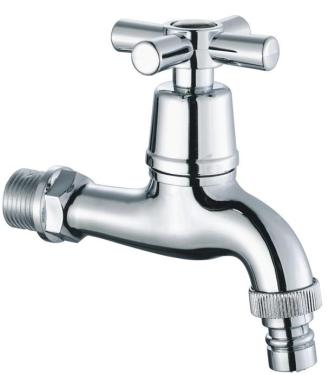
Since last July, the issue of "lead in faucets exceeding standards" has become a major concern, triggering public anxiety and raising questions about faucet manufacturing. To gain a deeper understanding of the current production status of copper and stainless steel faucets from leading brands both in China and globally, the National Federation of Industrial and Commercial Sanitary Ware Committee, in collaboration with the United Nations Home Building Materials Testing Center, organized field visits by mainstream Chinese media in early September. This initiative aimed to provide transparency and insight into the plumbing hardware industry.
Experts from well-known companies such as Lu Da, Jiu Mu, Zhong Yu, Shen Lu Da, and Brilliant Plumbing explained that copper and lead are naturally associated. In nature, there is no 100% pure copper, and a small amount of lead is often added during the production of brass to enhance its machinability. Without lead, the cutting process becomes difficult, and the forging properties suffer, potentially leading to cracks in the finished product due to poor stress corrosion resistance. Xie Xin, Secretary-General of the All-China Federation of Industrial and Commercial Sanitary Ware Committees, emphasized that "in normal use, copper faucets are almost harmless. The daily intake of lead from various sources has a safe limit, and the lead released from faucets during water flow is nearly undetectable. The fear of lead poisoning from faucets is a baseless myth."
Hong Guangming, General Manager of Shenluda Group, noted that in developed countries like Europe and the U.S., the main material used in faucets is brass, primarily due to its antibacterial properties—something other materials like stainless steel or plastic lack. Zhu Jianhong, Deputy General Manager of Luda Group, highlighted that China leads the world in low-lead copper manufacturing and research. Lin Hsiao-fat, Chairman of Jiumu Kitchen, pointed out that while laboratory tests show stainless steel faucets don’t contain lead, they may include elements like nickel, chromium, and manganese. Excessive release of these metals can be harmful to health. Cai Yu, CEO of Zhongyu Sanitary Co., Ltd., clarified that completely lead-free copper faucets do not exist, and the term "lead-free" in the market typically refers to low-lead options, which require high-quality materials, advanced technology, and strict electroplating processes—only large, capable enterprises can meet these standards.
In 2014, the National Building Materials Industry Construction Hardware Plumbing Product Quality Supervision, Inspection and Test Center introduced a new version of GB 18145 (replacing the 2003 edition) titled "Ceramic Sealed Tap," which made the precipitation of 17 heavy metals mandatory. This standard aligns with the North American NSF61 standard and imposes strict controls on the market. Cai Shizhan, Deputy General Manager of Brilliant Plumbing, stated that all major players in the Chinese sanitary ware industry participated in developing this standard. Only 30–35% of medium and large enterprises could meet the new requirements, while smaller companies without sufficient resources faced elimination. This new national standard is expected to significantly drive the industry toward higher quality and safety standards.
String Pouch,String Canvas Pouch,String Pouch Bag,String Dust-Proof Pouch
Dongguan C.Y. RedApple Industrial Limited , https://www.hpgbags.com